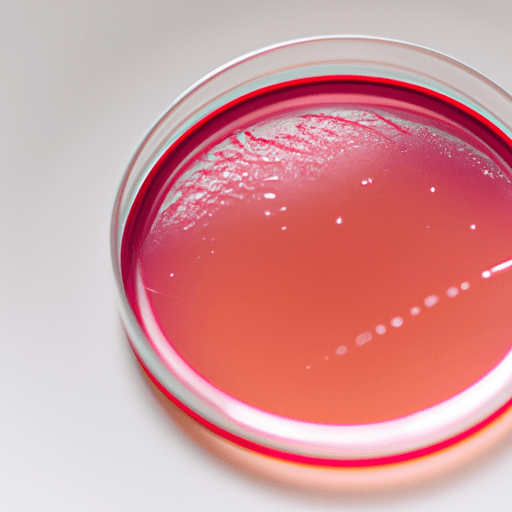| Complexity level: | 9 |
| Project cost ($): | 180 |
| Time required: | 1 day for preparation, 3 days for experiment |
| Material availability: | You will require access to a laboratory. Enlist the help of school staff to procure the necessary tissue samples |
| Safety concerns: | None |
Hypothesis
The human colorectal adenocarcinoma cells will grow at a faster rate after being exposed to nicotine.
Overview
Cancer and nicotine
Cancer is a condition where a cell will become abnormal by uncontrolled multiplication and growth. Under normal conditions, a healthy cell will only multiply and grow when our body needs the additional cells. This condition is required to maintain our healthy body. However, when the cells start to multiply without control, a mass of tissue called a tumor will start to form. The tumor can be either benign or malignant.
Benign tumors can be removed and will not grow again. This tumor is not cancerous. Benign tumors cannot spread to other parts of the body and are not a threat to human lives. In contrast, malignant tumors are cancerous cells. They are able to invade and cause damage to organs and tissues located adjacent to the malignant tumor. These cells can also enter the bloodstream and spread to other parts of the body.
The presence of nicotine can cause cancer cells to grow more quickly. One of the common sources of nicotine is cigarette smoking. Nicotine in itself does not initiate cancer; however, the byproducts of nicotine and other substances found in cigarette smoke can trigger the start of cancer.
Scientific Terms
Materials
The materials required for the science fair project:
- Human colon colorectal adenocarcinoma tissue
- 1 tissue culture flask
- Phosphatase assay kit
- Well plates
- 2g of nicotine
- 400ml distilled water
- 1 spatula
- 1 digital weighing scale
- 3 beakers
- 1 measuring cylinder
- 1 pipette
Procedure
1. For this science fair project, the independent variable is the concentration of nicotine solution. The dependent variable is the rate of proliferation of cells in the tissue sample. This is determined by performing a colorimetric analysis using the phosphatase assay kit. The constants (control variables) are the room temperature, amount tissue used and the incubation period.
2. The Human colon colorectal adenocarcinoma tissues are colon cancer cells. They are normally obtained from the confluent tissue cultured in a flask. These are tissue that have reached a certain level of mass density and will have minimal cell multiplication activity.
3. The tissues samples are extracted from the flask using a spatula and placed in 12 well plates. The well plates are numbered 1 to 12.
4. The nicotine solution is prepared in the 3 beakers by adding 1mg of nicotine to 100ml water in the 1st beaker, 5mg of nicotine to 100ml water in the 2nd beaker and 10mg of nicotine to 100ml water in the 3rd beaker.
5. Using the pipette, 3 drops of 1mg/100ml nicotine from the 1st beaker are placed in the well plates numbered 4, 5 and 6. Another 3 drops of 5mg/100 from the 2nd beaker is added to well plates 7 to 9 and 3 drops of 10mg/100 from the 3rd beaker is added to well plates 10 to 12. No nicotine is added to well plates 1 to 3.
| Label | Well plates | Content of the beaker |
| None | 1,2,3 | None |
| Beaker 1 | 4,5,6 | 1mg of nicotine to 100ml water |
| Beaker 2 | 7,8,9 | 5mg of nicotine to 100ml water |
| Beaker 3 | 10,11,12 | 10mg of nicotine to 100ml water |
6. The well plates are left to incubate for 3 days. After the 3rd day, they are tested for cell proliferation or cell growth. This is done using the phosphatase test kit and colorimetric tests. The results of the tests are recorded in the table given below.
Results
The results show that the presence of nicotine will encourage cell proliferation or make the cells multiply faster and grow.
| Condition | Affect of nicotine on cell proliferation | |||
| None | 1mg/100ml | 5mg/100ml | 10mg/100ml | |
| Cell proliferation | X | Y | Y | Y |
X - No cell proliferation, Y - Cell proliferation found
Conclusion
Our hypothesis, that the human colorectal adenocarcinoma cells will grow at a faster rate after being exposed to nicotine, is proven to be true.
Despite the avalanche of publicity campaigns targeted at educating the public on the dangers of smoking to human health, most smokers still find it difficult to stop the habit. The presence of nicotine in the cigarette makes smoking addictive. However, this comes at a great cost to the health of the smoker and all those around him
Also consider
This science fair project can also be repeated using other tissue, such as human prostrate carcinoma samples.
Try to repeat the experiment by exposing the tissue to cigarette smoke.
References
Colon cancer - http://www.medicinenet.com/colon_cancer/article.htm
How nicotine helps cancer grow - http://www.newscientist.com/article/dn9598-how-nicotine-helps-cancer-grow.html

